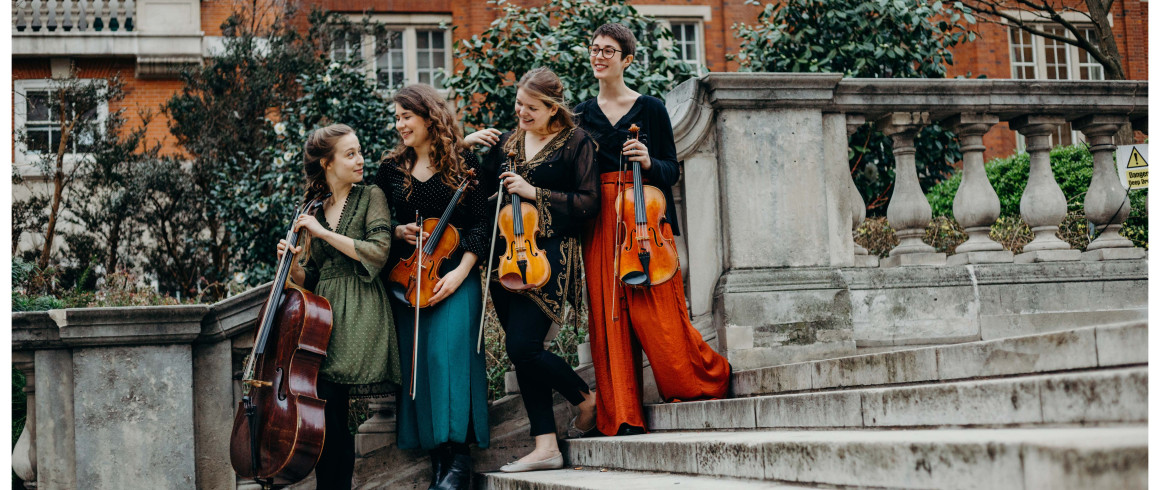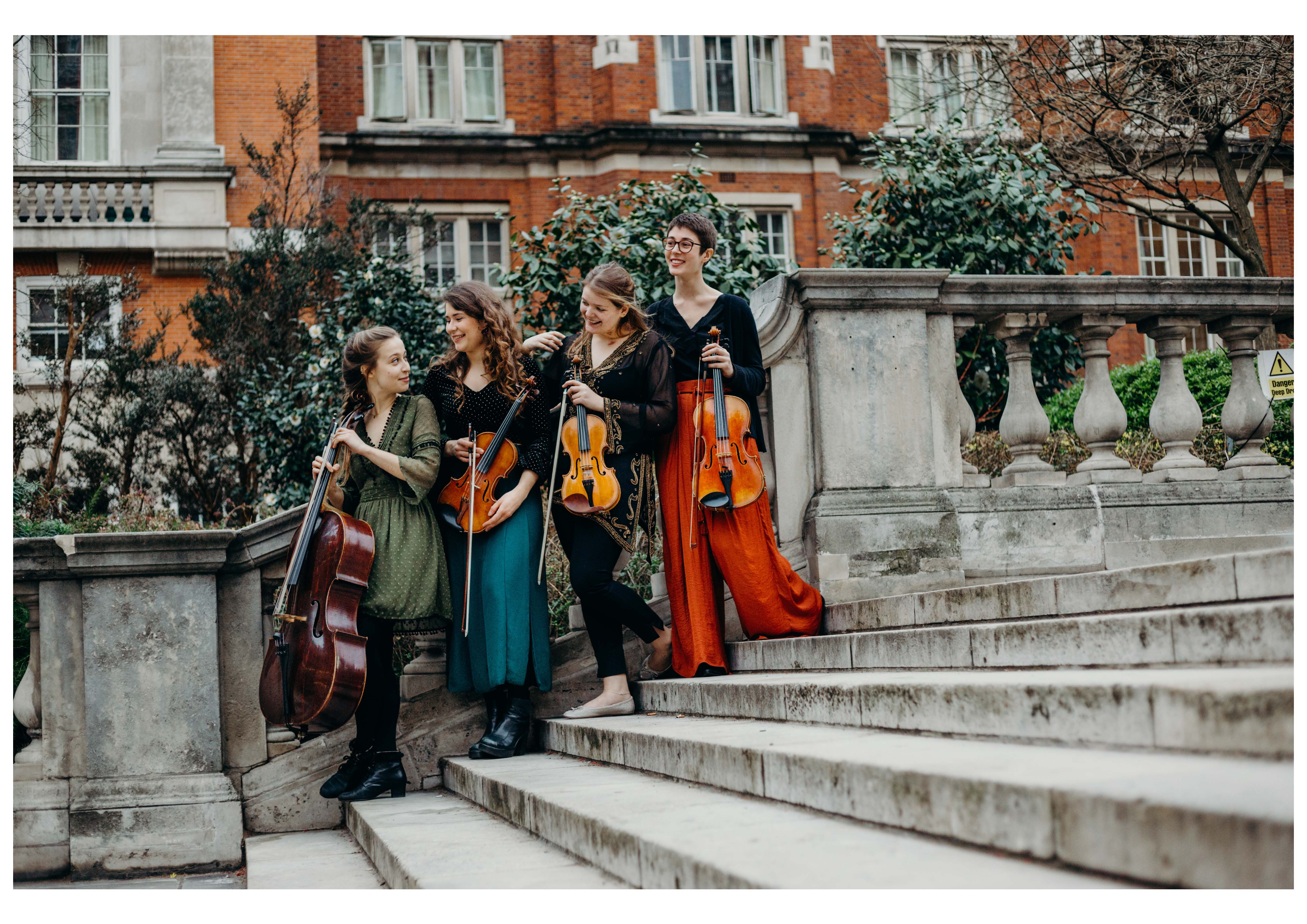Pembroke People: Life after Music at Pembroke with Wallis Power
Wallis Power (2014) is an accomplished Cellist and Master’s student at the Royal College of Music. She’s been playing music from an early age and has recently created the Brompton Quartet, which won the St Martin-in-the-Fields Chamber Music Competition in March 2019. In today’s blog she talks about life at the RCM, creating the Brompton Quartet, and what comes next.
Photo: The Brompton Quartet
Why did you choose to play the Cello?
I started with the violin when I was five, probably too young to really enjoy it! When I was seven or eight I started playing the Cello and found it a lot more comfortable. It’s a very natural instrument to play and I love the sound of it. Jacqueline du Pré was my hero! I just feel in love with it, and cellists are lucky in that we have an amazing repertoire to choose from.
What are you studying at the RCM?
Masters in Performance. I went for that because Cambridge is very academic, so this is the first chance I’ve had to really immerse myself in playing.
What is the RCM like?
It’s very different from my experience at Cambridge. There is a lot going on at Cambridge musically, and I did really immerse myself in it, but in my first year at RCM I was a bit overwhelmed by the standard of music. Most people had done their undergraduate degree at another music College where they could practice for hours on end, and I hadn’t been able to do that. Now I’m in my second year I’ve felt more comfortable and found what I enjoy doing. I feel much more at home.
What are you working on now?
I’m coming to the end of my Masters and I have my final recital coming up in June. I’ve already had my chamber music exam and the orchestral performance exam. After I graduate I’ll continue living in London and I’ll be working with Glyndebourne’s touring Orchestra as part of their Pit Perfect scheme. I’ve also got some work with Bournemouth Symphony Orchestra, and will continue working on the seeds I’ve planted this year. I also teach, which is something I started doing in Cambridge. I remember teaching a few University students, and it’s nice to be doing that now as a paid job!
How did the Brompton Quartet come about?
I met Hannah, the violist, at Cambridge. She’s now at the Royal Academy of Music. We were on the instrumental awards scheme together so we were put in a quintet in our first year. We had lots of experience and were very good friends, so it was natural that we wanted to play together.
Maja, the first violinist, I knew through a music festival we played at together and I really liked playing with her. She’s very enthusiastic, a great first violinist. Maja then invited Emily who I didn’t know before, but she’s a very natural second violinist and it just seemed to work when we all first played together. We’re also all very good friends which is essential. It’s not just turning up for rehearsals, we make it into an enjoyable thing as well.
There’s a lot of luck involved with forming groups but we definitely wanted an all-female group. It’s good to represent women, and also we aim to collaborate with female composers. We worked with a composer called Angela Elizabeth Slater, and played one of her pieces in the final of the St Martin’s competition. We very much support the work of women composers and while that’s not the central identity of the group it is something we’re very aware of and it’s important to us.
What other activities are the quartet involved in?
Most of us teach, and we’re really passionate about bringing music to the next generation.
Why is that so important to you?
So many music teachers I had when I was younger were of a certain age and didn’t necessarily make music exciting. I think it’s important to bring my experience to the lessons, to show them the pieces I’m playing and that it’s possible to take your instrument as far as you want if you’re dedicated and put the time in. I visited a school recently where not many of them had access to playing music, and it was wonderful to see them so engaged. I wish more government funding was put towards music education. It’s not just about learning an instrument, it’s so much more than that. It can be about interaction, cross-curricular study, religious studies, cultural studies, history. Music overlaps with everything.
What has music brought to your life?
It’s brought me all my friends! It’s the best thing to be able to play music with other people. It’s also brought me a discipline that I apply to other areas of my life. It makes you hyper-organised and helps with scheduling. There’s so much. I could go on forever I think!

